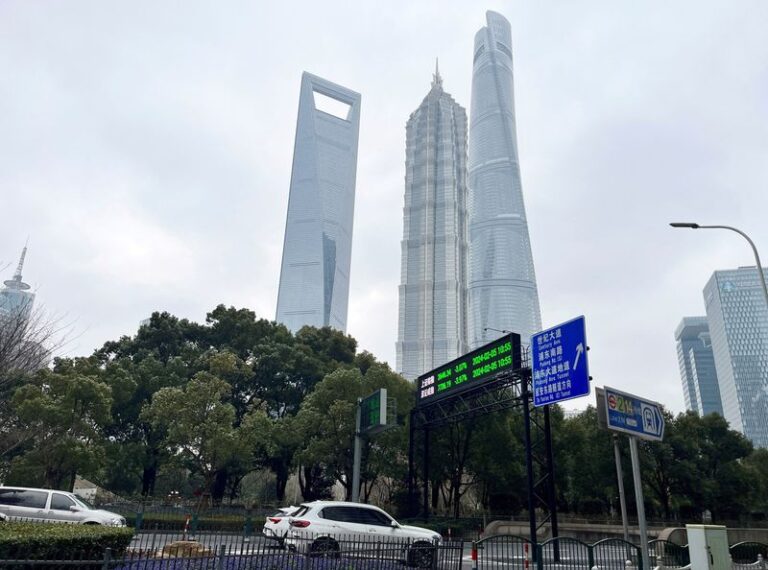Written by Summer Jen and Samuel Shen
HONG KONG/SHANGHAI (Reuters) – Chinese money is flowing into funds invested in offshore assets at breakneck speed, violating foreign investment restrictions as China seeks to revitalize its domestic market and stabilize the yuan. This makes the government's efforts difficult.
The rush to invest offshore reflects low domestic confidence in qualified domestic institutional investment, an important outward investment channel that allows Chinese people to buy overseas securities under the Chinese government's strict capital controls. This is evident from the sales of funds issued under the Home (QDII) program.
According to data from the China Asset Management Association, the number of QDII fund units sold in January rose 50% year-on-year, a record high, while the number of domestic equity investment trust units fell 35%. QDII Fund assets under management increased 19% year over year.
Exchange-traded funds (ETFs) that track the Nikkei Stock Average and Nasdaq-listed stocks have been exposed to price premium risk in recent weeks as buyers bid significantly more than the value of the underlying assets to acquire shares. .
The outbound scramble highlights pressures on China's capital account and currency, as well as challenges in rebuilding domestic investors' confidence in its home market.
Chinese stocks are languishing near a five-year low, and the country's 30-year government bond yield is at an all-time low.
“We see a pressing need from high-net-worth clients to diversify their asset allocation,” said Le Long, founding partner of Shanghai-based FR Harvest Asset Management, which helps clients invest through QDII. “There is,” he said. “After two decades of high growth and high profits, China's economy faces a slowdown for the foreseeable future,” he said.
Business owners are also struggling to keep up, turning away potential investors, looking for partners or finding other ways around the restrictions.
QDII schemes are capped by quotas, or limits on outward investment, set by the State Administration of Foreign Exchange (SAFE) of China.
According to official data, no new quotas have been granted since July, and the cumulative approved quota stands at $165.5 billion.
Last week, ChinaAMC capped the daily subscription amount of investors to 2,000 yuan ($277.84) for the Huaxia Global Technology Pioneer Hybrid Securities Investment Fund, which counts US tech giants as its main holdings. Manulife Fund Management has set a daily purchase limit of 300 yuan for its India Opportunity Equity Investment Fund.
Another QDII product sold in China is putting money into BlackRock UK's hedge fund, which has seen its fundraising jump fivefold this year, two people familiar with the matter said. , has raised nearly $12 million, compared to the $2.1 million raised in 2023. I am not authorized to speak publicly.
“Local investors' demand for QDII funds has increased significantly this year,” one of the people said.
China Resources Trust, which jointly launched the product with BlackRock, said the product suspended new subscriptions in March. A BlackRock spokesperson did not respond to a request for comment.
Standard Chartered also recently halted new investments in QDII products by Chinese customers, citing “commercial reasons”.
Zheng Peng, QDII fund portfolio manager at China Asset Management Co., said the 190-basis-point difference between 10-year U.S. government bond yields and Chinese government bond yields is driving current demand. We expect the trend to continue.
(1 dollar = 7.1985 Chinese Yuan)
(Reporting by Summer Jen; Editing by Sam Holmes)

